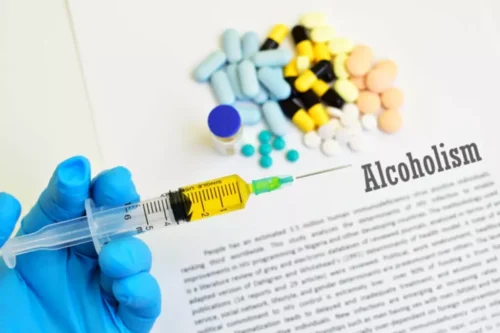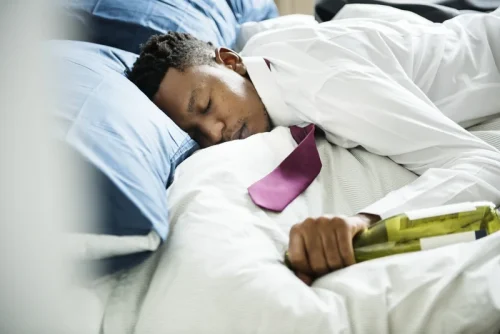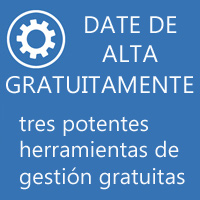
Start the day right with breakfast, and continue with frequent small meals throughout the day. Going too long without eating leads to low blood sugar, which can make you feel more stressed or anxious. Getting enough healthy fats in your diet can help to boost your mood. Although alcohol doesn’t cause a panic attack directly, it does affect parts of the mind and body that ultimately may contribute to the development of a panic attack, and it does so with more frequency than other types of healthier beverages.
Lifestyle changes to reduce anxiety
Heavy alcohol use can also lead to other mental health disorders, such as antisocial personality disorder and bulimia. Anxiety is a significant underlying factor contributing to unhealthy drinking patterns. According to the National Institute on Alcohol Abuse and Alcoholism (NIAAA), individuals with anxiety disorders often turn to alcohol as a form of self-medication.
Women and Alcohol

Physical activity releases endorphins, which are known to improve mood and reduce anxiety. Working out doesn’t have to be super intense to have a positive effect on anxiety, either. Walking, running, yoga, or even swimming can be healthy outlets that combat anxiety and offer stress relief. You can get rid of hangxiety with rehydration, rest, and pain relievers.

How alcohol affects the brain
Hangxiety is a mix of «hangover» and «anxiety.» This term describes the embarrassment, regret, and shame you might feel after a night of drinking. These feelings typically accompany classic hangover symptoms like a headache, fatigue, and nausea. Regular use of alcohol to temper feelings of anxiety is a telling sign you could be developing an alcohol use disorder. Furthermore, people with anxiety who have other psychiatric disorders (such as depression) are more likely to reach for alcohol as a coping mechanism, which may also lead to an alcohol use disorder. If drinking gives you the sensation of temporary anxiety relief, you may be inclined to drink more often, to cope with uncomfortable circumstances.

The Impact of Alcohol on Anxiety Medication

Track how much you’re drinking to help spot patterns so you can avoid triggers – the MyDrinkaware app can help. Any information published on this website or by this brand is not intended as a substitute for medical advice, and you should not take any action before consulting with a healthcare professional. If you’re in the depths of hangxiety and need fast relief, Dr. Greenfield recommends working through it with meditation, grounding activities, calming yoga poses or stretches, or deep breathing exercises. “A lot of the uncomfortable emotions we have, when we try to push them away or avoid them, they just get worse,” Dr. Greenfield says. When you turn toward your feelings, they often become less unpleasant.
- It tamps down our body’s fight-or-flight response by suppressing the amygdala.
- Most people barely notice them, or pass them off as if they’re not important.
- According to the Anxiety and Depression Association of America (ADAA), it isn’t unusual for people with social anxiety disorder and other anxiety disorders to use alcohol to try to calm anxiousness and ease related symptoms.
- Specifically, whereas socially phobic men benefitted equally well from either cognitive–behavioral therapy (CBT) or 12-step facilitation (TSF), women with social phobia fared less well if they were assigned to TSF.
- By clicking “Submit,” you certify that you have provided your legal name and phone number, agree to the terms and conditions and privacy policy, and authorize Addictionresource to contact you.
The link between substance abuse and mental health
Chemical dependency specialist Joseph Janesz, PhD, LICDC, says there are various ways that anxiety and alcohol are linked, so it’s important to understand how alcohol affects not only https://ecosoberhouse.com/ your body, but also your mind. Do you ever notice yourself feeling a little out of sorts the day after you drink? Anxiety seems to be a bedfellow of alcohol — and for many reasons.
Treatment options for alcohol use disorder
Get involved in distracting tasks like watching a movie, exercising, reading, journaling, or something else to get your mind off things. Something small you can’t seem to let go of will probably feel insignificant in a few hours when the alcohol has worn off. But increasingly, research is showing that alcohol might be precisely what is causing your anxiety. According to this narrative, alcohol is supposed to take the edge off and ease some of your anxieties. Commercials, films, and even friends and loved ones might recommend alcohol for anxiety as a solution to your problem.
Managing conditions
- These beverages include certain beers (e.g., imported beers, beer on tap, and nonalcoholic or reduced-alcohol beers), red wines, sherry, liqueurs, and vermouth, which is critical to know when treating people who also have alcohol problems.
- Increased cortisol can reduce your ability to regulate emotions the next day.
- These feelings are sometimes called «anxiety» and are pretty standard.
- In addition to adjusting standard pharmacotherapy and psychotherapy protocols for anxiety and AUDs when treating comorbid clients, it also is crucial to apply these methods in a way that produces the best outcomes for both disorders.
- As a result, it’s possible that having a few drinks that make your BAC rise and then fall back to normal again can make you more anxious than you were before.
- Moreover, the impaired judgment and impulsivity among persons with co-occurring alcohol use problems may increase the risks of taking an overdose of the medications that can result in toxicity and, potentially, suicidality.
In fact, alcohol’s effects can be similar to those of antianxiety medications. When dealing with stressful days or nervous situations, you may be tempted to have a glass of wine or a beer to calm your nerves. However, drinking alcohol, especially heavily and over a long period of time, can actually increase your anxiety. Brittany Burke Robert, the author of this article, has written about health for Oprah Daily, Well+Good, Livestrong, Reebok and other publications and digital brands for over 15 years. She has extensive experience working alongside clinicians and providers to create physical and mental well-being content that’s useful, informative, and clinically effective.
Do You Need to Stop Drinking?
The sense of relaxation you feel when you drink can often be attributed to your blood alcohol content (BAC). A rise in BAC levels leads to temporary feelings of excitement, but feelings of depression occur as BAC levels fall. As a result, it’s possible that having a few drinks that make your BAC rise and then fall back to normal again can make you more anxious than you were before. Drinking excessive amounts of alcohol can also have noticeable physical and mental consequences. Over time, consuming too much alcohol can lead to blackouts, loss of memory, and even brain damage (especially if it causes other health problems, such as liver damage). These issues can create more anxiety as you cope with their symptoms.
People Also Ask
It also disrupts your body’s ability to manage stress, lowering overall stress tolerance. Over time, you will become stressed more easily by everyday life and experience lower mood quality. Even moderate amounts of drinking have been shown to increase cortisol production, which ultimately makes you feel more stressed, even in your daily life when you aren’t drinking does alcohol cause anxiety attacks anything. The more someone drinks, the harder the brain must work to restore balance, intensifying anxiety symptoms as the alcohol wears off. Bottom line, if you’re going to treat your anxiety and depression with medication, you especially do not want to continue drinking. Drinkaware UK provides some useful online tools to help you to reduce your alcohol intake.



